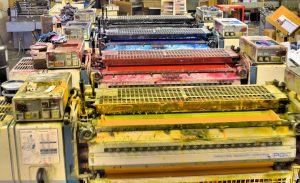Posted in Corporate Law

As part of a plea bargain Adam Jay Boskovich of Laguna Niguel in April pleaded guilty to false statements made in the sale or purchase of securities, a felony, according to the Orange County Register. He was involved in a $200 million dollar Ponzi scheme ($150 million coming from Orange County residents), the largest in Orange County history, according to law enforcement.
Gerald Frank Cellette is the main criminal defendant in the case, who faces several felony charges. Proving there’s no honor among thieves, Senior Deputy District Attorney Marc Labreche told the newspaper Boskovich lied to investors, but was unaware Cellette was running a Ponzi scheme.
Cellette is from Minnesota and was serving a six year prison sentence there when he was charged in Orange County. He’s accused of inventing the investment scheme. Boskovich recruited local investors for him.
Cellette met an Orange County resident in Minnesota in 2005. He invested in Cellete’s printing business, who paid him back with a profit and generously offered additional investment opportunities. Cellette pitched 10% to 15% in returns to investors in two to three months.
Over the years investors from California, Minnesota, Georgia, Arizona, Colorado, Hawaii and Illinois signed on and handed over $200 million. The net loss is an estimated $53 million, $21 million of it from Orange County victims. Eighty investors lost about $21 million, $17 million coming from those recruited by Boskovich.
Cellette told investors he had printing contracts and needed money to get a 20% discount on paper. He is accused of spending the money on himself, purchasing multiple homes, cars and flights on private jets. He enjoyed a Go-Kart track, a bowling alley and a 1950’s themed malt shop in some of his homes.
If you have concerns about an investment you’ve made or believe you’re the victim of investment fraud, contact our office. We can talk about your investment, the returns you’ve received, applicable laws and whether they’ve been violated.
